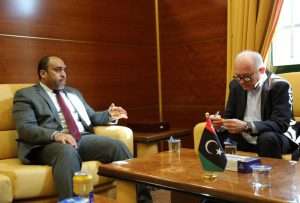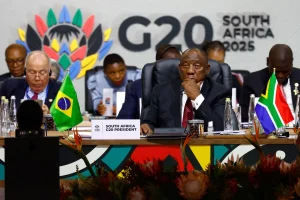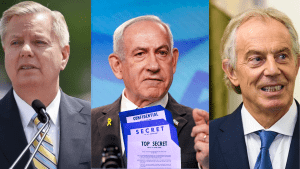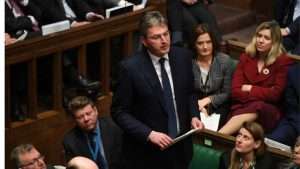Former MP on Britain’s past, present and future in Libya
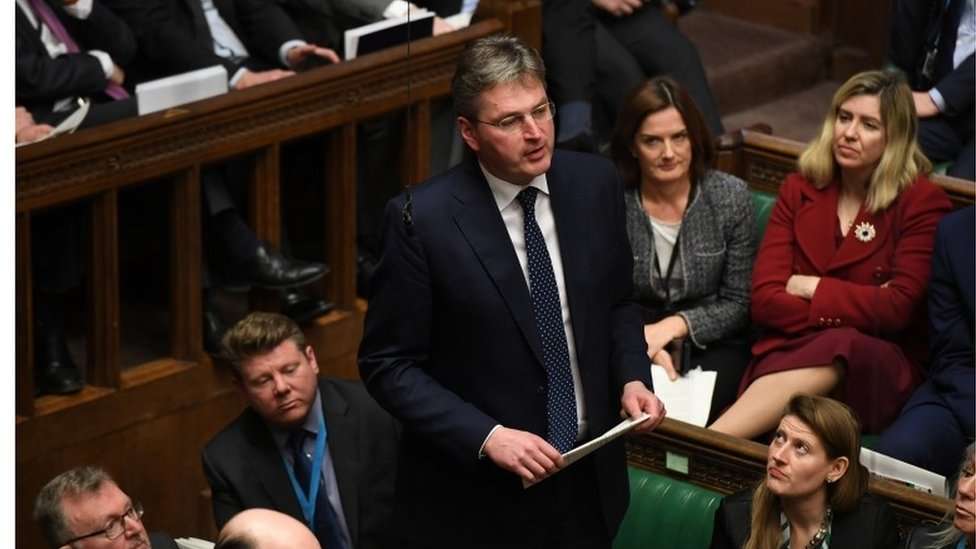
Daniel Kawczynski is the only British MP to have been born in a communist country. It is this fact that first connected him to Libya, as first written in The Libya Gazette, he said, “We had nothing, everything was rationed. But my aunt and uncle were sent to Libya to work as engineers and used to send back a box of oranges every year for Christmas. For a child in communist Poland to receive a box of Libyan oranges was like receiving a box of gold.” From here Kawczynski’s fascination with Libya grew until it burgeoned into the setting up of an all-party Parliamentary group on Libya, leading three UK Parliamentary delegations to the country and now has resulted in him becoming the chairman of the Libyan British Development Association.
But Kawczynski’s interest and engagement in Libya is set against the backdrop of disappointment in the role that Britain has, and continues, to play. “British governments of all political persuasions have been disastrous in their management of relations with Libya.” While in opposition he remembered his frustration at the actions of the Blair and Brown administrations in the late 2000’s. “While the rest of the Arab world was acutely aware that Colonel Gaddafi was a rogue operator, Mr. Blair decided to bring him in from the cold. I tried to campaign against it and that is why I brought the parents of the murdered police officer Yvonne Fletcher to meet the then foreign secretary David Miliband and to this day we don’t have the killer of a serving police officer in custody.”
It isn’t just the Labour party whom he accuses of failure however. The Conservative Party, of which he was an MP for from 2005-2024, have also made mistakes in his opinion. “I told (David) Cameron that he had to deal with the Gaddafi regime in a very different way to the then prime minister Gordon Brown were he to be elected PM, but little did we know that very shortly thereafter the revolution started.” Crucially, during the Arab Spring, Kawczynski points out that Libya was “the only Arab country of the 22 that during the Arab Spring the British government decided to intervene in and it was done on the back of a fag packet. Cameron takes out the antiquated Soviet-era tanks and radar which were completely useless, cuts off the head of the dictator and after an Orwellian dictatorship of 42 years the whole country becomes extraordinarily vulnerable and a vortex for nefarious groups to enter.”
Not only was it a mistake of the British government to so hastily engage in Libya but an even greater one in Kawczynski’s opinion was to leave without laying down the proper framework and infrastructure in order to create a stable democracy in Libya: “I think it is absolutely disgraceful given we intervened just how little consideration there is given to Libya both in the British parliament and also across the whole of the British commercial establishment.” This apathy towards Libya is one that remains to this day, and one that Kawczynski critiques the current Labour government for. In his view not only is the British government doing a disservice to the Libyan people but also to the UK’s own political and economic interests: “Relations with one of the world’s largest energy producers should be the absolute priority of the foreign office”, and yet Libya was just the 62nd largest trading partner for the UK in the fourth quarter of 2025.
Kawczynski , who is a staunch Brexiteer, believes the UK is missing an opportunity and remarked that the status of the UK’s relations with Libya post-Brexit remains a “million dollar question.” However he claims that the UK is now able to access Libyan markets without tariffs that were previously applied to products such as oranges and olives in order to protect southern-European member states. Indeed, trade has grown with Libya since the end of the pandemic in 2021. According to the UK Government Department for Business and Trade: “Total trade in goods and services (exports plus imports) between the UK and Libya was £2.5 billion in the four quarters to the end of Q2 2025, an increase of 10.7% or £244 million in current prices from the four quarters to the end of Q2 2024.”
But the issue of how, and thus crucially who, the UK should do business with in Libya is pivotal to any future economic and political developments. Kawczynski believes that only by engaging with both rival governments in Libya can an effective future be realised: “You do not create a normal, functioning modern democracy overnight after 42 years of brutal dictatorship and therefore it is going to take time for Benghazi and Tripoli to come together and commercial actors will go wherever the business is. The British government has to be cognisant and respectful in trying to facilitate a dialogue with both Tripoli and Benghazi.”
For Kawczynski, Libya represents an economic partner that, if stabilised, could generate opportunities for both British businesses and Libyan democracy. But the sanctions he refers to were not imposed lightly and the UK, alongside the UN and EU, maintains sanctions on Libya due to ongoing human rights abuses, systematic corruption, and the actions of armed groups that continue to undermine political progress. They were introduced as a response to years of abuses, including arbitrary detentions, torture in militia-run prisons, forced disappearances, and the exploitation of migrants, who face extortion and enslavement in detention centres. The UN has repeatedly documented oil-smuggling networks and financial corruption that deprives Libyans of basic services while enriching militia leaders and political elite.
But Kawczynski believes in economic engagement in both Tripoli and Benghazi and goes on to say that “the UK should engage in a collaborative way in order to support the Libyans with their maritime security and with their policing. All the things that were muted by the brutal dictatorship of Gaddafi. The European Union with all of its resources has failed to help Libya and now it is time for the United Kingdom to step up to the plate.”
Whether the UK has the appetite, bandwidth, or diplomatic will to pursue the deeper economic and security partnership he calls for remains uncertain. But his argument is clear: Libya’s instability is not a distant problem, and Britain’s past involvement carries responsibilities that should not be indefinitely ignored. For Kawczynski, the question is no longer whether the UK should return to Libya, but why it has taken so long to try.
Libya Gazette, Maghrebi.org
Want to chase the pulse of North Africa?
Subscribe to receive our FREE weekly PDF magazine





